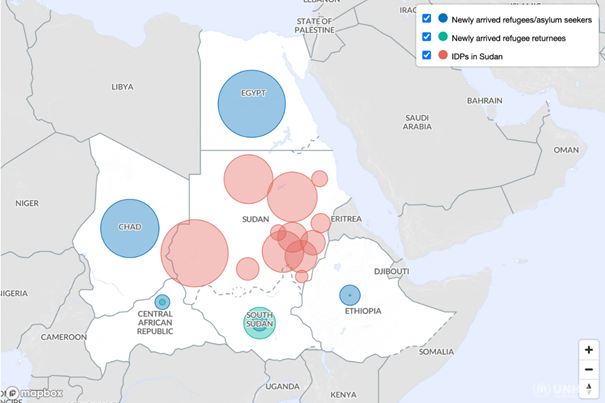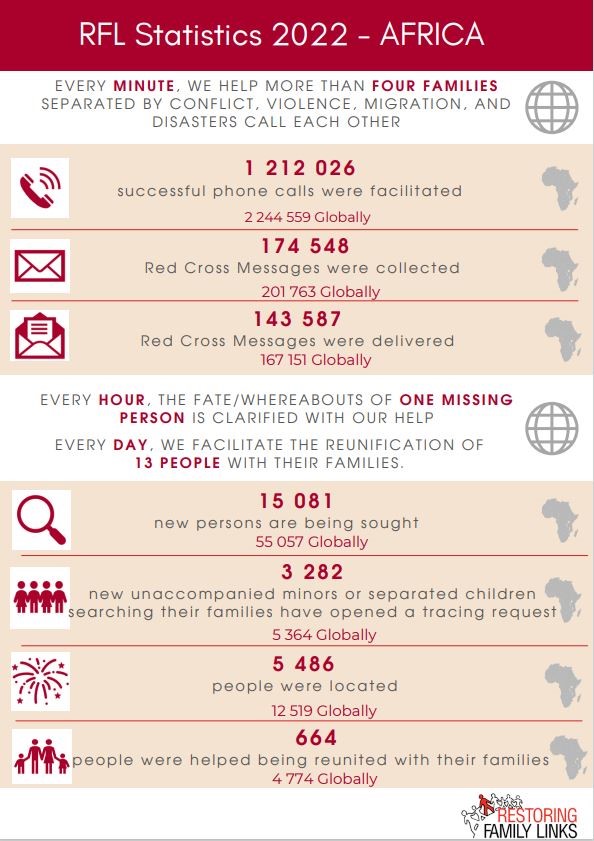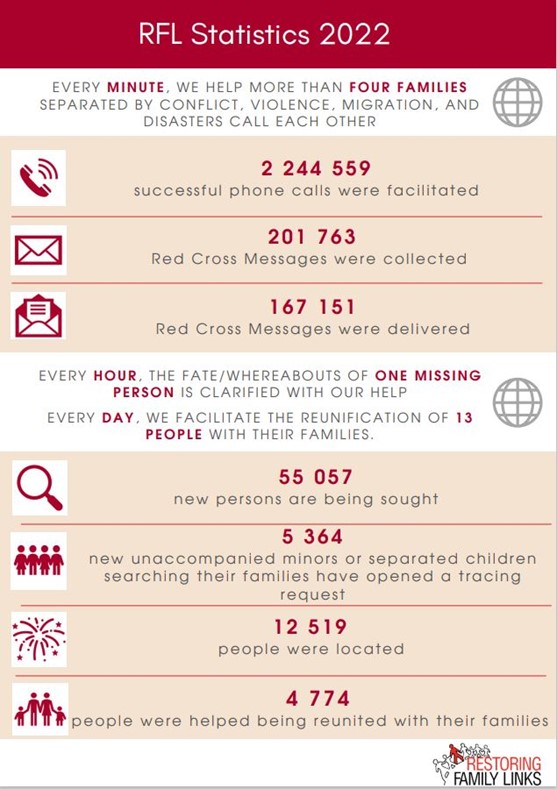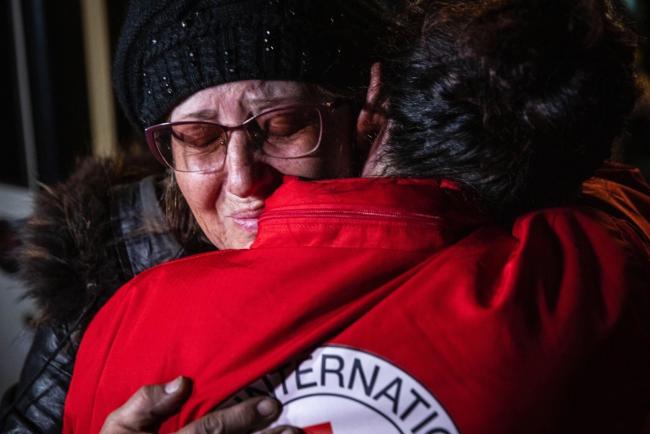Lifeline: Reconnecting families in Sudan and beyond

The ongoing conflict in Sudan has forced over 4.2 million Sudanese people to flee their homes to elsewhere within Sudan, and another 800,000 to take refuge in neighbouring countries (as of 25 September 2023).
The ongoing conflict in Sudan has forced over 4.2 million Sudanese people to flee their homes to elsewhere within Sudan, and another 800,000 to take refuge in neighbouring countries (as of 25 September 2023). Since the conflict broke out in Khartoum on 15 April 2023, the International Committee of the Red Cross (ICRC) and the Sudanese Red Crescent have worked to reunite families and to help find answers for those who have lost contact with their loved ones. These services for restoring family links (RFL) are provided by the Family Links Network, which brings together the ICRC and the National Red Cross and Red Crescent Societies.
RFL services are being provided to people who have fled within Sudan and to neighbouring countries, including at various centres where Sudanese people have been gathering, and at refugee camps that also house Eritrean, Ethiopian and South Sudanese people, and border and transit centres in Northern State (on the border with Egypt), where there are people of various nationalities.
Between May and September 2023, we arranged 14,000 successful phone calls. Sudanese refugees alone have made more than 1,500 calls since July. Over a third of those were successful, with 558 refugees now back in touch with their relatives. Wounded patients in health-care facilities in Adré, Abéché and N’Djamena have made a total of 56 phone calls. In addition, Red Cross teams have registered more than 20 unaccompanied children to begin the process of finding their families. For the people who have managed to reconnect with their families, a great weight has been lifted off their shoulders.
Raouda Ahmat Katir, a refugee from Darfur, managed to speak to her son for the first time since fleeing. He’s now in Egypt. “I’m so happy. I’ll be able to sleep well now,” said Katir. “Before, I couldn’t sleep. I cried.”

Khadidja* too has been making phone calls thanks to the Red Cross. The 37-year-old from Sudan has been living in Chad, in Zabout Refugee Camp, since the end of April. “With the chaos in Khartoum, I stopped getting news from my family. I’ve hardly slept these past four months. I finally managed to get in touch with my younger brother, who’s in Khartoum with my parents. He told me that my other brother fled for Egypt. His son is here with me, so at last I’ve been able to tell him that his father is fine.”
There are more than 418,000 Sudanese refugees like Khadidja in Chad. Most are women and children. Around 37 per cent of the phone calls made so far have been successful, but many families still have no information on the whereabouts of their husbands, sons, fathers or brothers – unsure if they remain in Sudan or have managed to escape or even whether they are still alive. As the violence continues in Darfur, we fear that the number of people unaccounted for could continue to rise, particularly given the huge numbers of people being displaced.

Establishing contact with Darfur is already challenging, made worse by the unreliable means of communication, and search efforts are being further hampered by rainy season floods. In addition, many displaced families have little money. In response to this, Red Cross teams have set up branches in Djabal and Zabout Refugee Camps, in Adré in Sila Region, and in Gaga and Farchana, both in Ouaddai Region. Our partnership with the Red Cross of Chad has enabled us to train more than 30 volunteers to help with search efforts.
Nonetheless, more and more families in Sudan and eastern Chad are seeking our help to find their loved ones. Given the limited resources available, we are issuing an appeal to our donors and urging them to give generously. To bring an end to the anguish and uncertainty they are facing, we must find out what has happened to those who remain missing.
A global effort
The impact of the work done by the Family Links Network extends far beyond Sudan's borders. Every day, as part of our ongoing commitment to reuniting families, we help an average of 13 people get back in contact with their relatives. Statistics for 2022 highlight the success of our efforts made to clarify what has happened to missing people. These successes are summarized in a series of infographics that show in numbers what RFL work has achieved all over the world.



